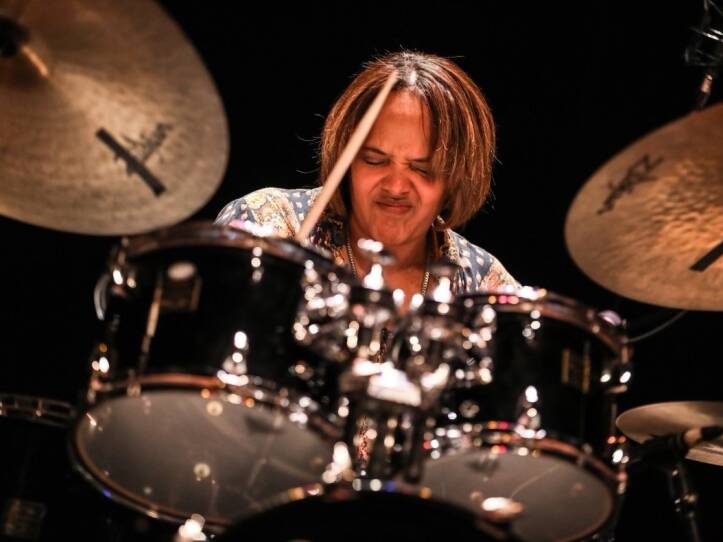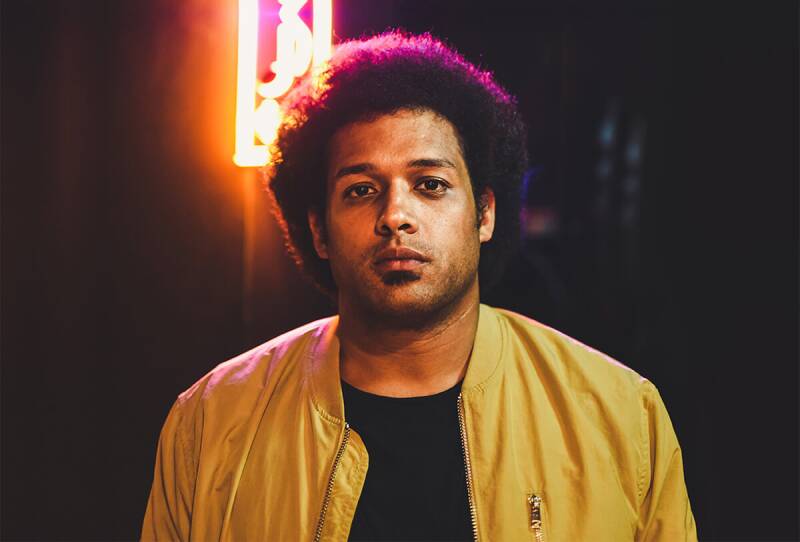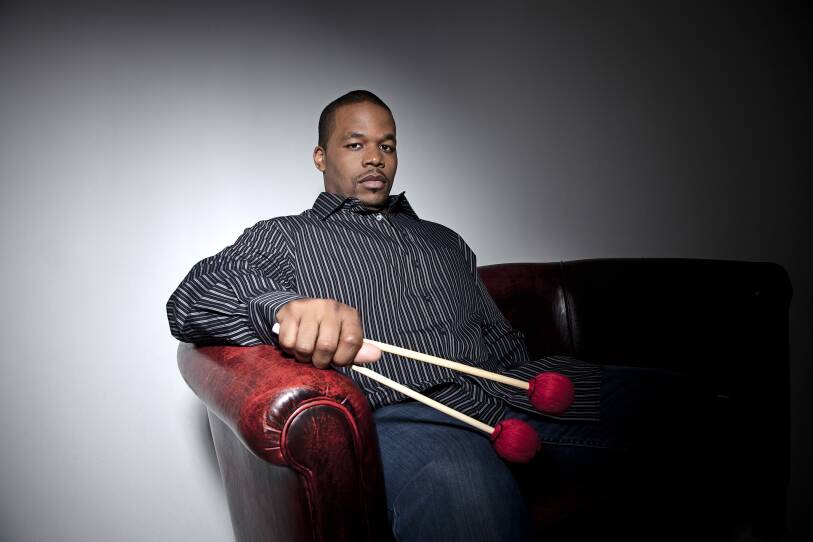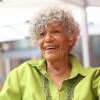As the word itself implies, history is, at its core, a story — arguably one penned by a select group of people. But you can also think of it as a culmination of present moments; an idea that is constantly being written and rewritten by virtue of our decisions to engage in activity that will most likely be recorded and remembered decades down the line.
Saturday will mark Terri Lyne Carrington’s third appearance at the Newport Jazz Festival — she’s previously appeared twice with Esperanza Spalding. But in a changeup, this is her first appearance as a bandleader. For her, this chance to operate as leader of her own ensemble works on two levels: it’s groundbreaking for her personal history, because she’s never done this before. But in the wider scope of things, she says, “it's important for women instrumentalists to be leaders.”
The inaugural Newport Jazz Festival was held in 1954, well over half a century ago, and over the years the event has carried its fair share of weight, as far as historical clout goes. And then — spoiler — the 2020 global COVID-19 pandemic happened, placing the festival on the back burner for the first time in its 67-year history. Historical continuity was disrupted, and to some musicians, or at least for Carrington, that’s more than a big deal.

“History is something that's important in general, it's in the music itself,” Carrington mused days before the 2021 edition was to begin. But it occupies a physical place. “[There’s] the actual geography of the place and the history that's happening there. And I think, you know, ‘what are we without our history?’”
Questions of our past occupy a large part of Carrington’s work. The drummer/producer/composer recorded and toured with musicians including Wayne Shorter, Herbie Hancock, and Spalding; but she’s also a professor at Berklee College of Music — and the founder and director of its Institute of Jazz and Gender Justice. Public perceptions of the jazz world, and the industry itself, is bathed in maleness to an absurd (yet unfortunately unsurprising) degree.
Enter Carrington’s mission: to advocate for gender justice through the lens that is Black America’s Music.
Carrington’s mission of social justice can also be experienced through her band Social Science, sporting a roster that includes pianist Aaron Parks, guitarist Matthew Stevens, saxophonist/bassist Morgan Guerin, vocalist Debo Ray and spoken word artist/turntablist Kassa Overall. Their 2019 album Waiting Game addresses themes including liberation, state violence and retaliation, and homophobia. A dark energy pervades the album, and that twilight mood is augmented by a bevy of guests that include Rapsody, Malcolm-Jamal Warner and Nicholas Payton; not to mention the use of archival voices featuring Assata Shakur and Angela Davis.
Social Science will be Carrington’s ensemble this weekend, and despite a pandemic-induced hiatus, one could confidently bet they’ll be on point. The crew managed to stay creatively in touch; with help from Zoom hangouts, Carrington explained that they were able to “write a piece for a symposium that I was curating, so we were able to kind of come together remotely and write a piece of music, which was great.” Other collaborations between members in New York and Boston yielded a new recording for the LetterOne Rising Star Award, and a music video for the Grammy Premiere Ceremony (Waiting Game was nominated for Best Jazz Instrumental Album).
For Carrington, it is just as important to change our history as it is to engage with it. She sounded optimistic as she described the direction recently named Newport Festival artistic director Christian McBride seems to be taking with the festival; that the history that is jazz will continue to be written by an eclectic vanguard, perpetuated for the enjoyment of all and the exclusion of none.
Heading to Jazz Fest? Here are three acts to check out...

Makaya McCraven
Using the word “drummer” here seems lazy at worst and inadequate at best. Instead, I’ll lean into the phrase “beat scientist,” which is how the Paris-born, Western Massachusetts-raised Makaya McCraven would describe himself. The Lockdown Year saw a pair of releases from the percussionist: February’s We’re New Again — a reimagining of GIl Scott-Heron’s final studio album I’m New Here — and Universal Beings E&F Sides, an album largely featuring unreleased cuts from the sessions for 2018’s Universal Beings. I’ve yet to be gifted the Talent of Clairvoyance, but I’d hype myself up for the possibility that any number of pieces from these two albums — whether the slow-burn kineticism of E&F or the apropos chaos of New Again — would be translated to be explored in a live, newly improvisational context.

Christian Scott aTunde Adjuah
In late August 2020, New Orleans native and Berklee graduate Christian Scott aTunde Adjuah released Axiom. The album was recorded live at Blue Note in New York’s Greenwich Village neighborhood, and was the last such concert the trumpeter played before lockdown began in earnest. The percussive collection of songs in that set sound drenched in musical dialect of the goodness that is Blackness, and their arrival last summer was a welcome reminder to what live music could actually sound like. Here’s hoping audiences can hear Scott’s ensemble pick up where they left off, leading listeners in a communion of sound.

Vibes Summit
The vibraphone is an incredible instrument, and any opinions to the contrary are, quite frankly, wrong. I will die on this hill. But if you need convincing, then there may be no more exciting chance than this melding of vibraphonic minds featuring Warren Wolf, Sasha Berliner and Joel Ross. When you consider their individual sounds and their recent achievements with their respective ensembles, you’re left barely able to imagine what those voices would sound like in concert: the suspended, far out sounds of Berliner meeting the introspective grooves of Ross meeting the smoky grown-folks vibes of Wolf. A true summit indeed.




